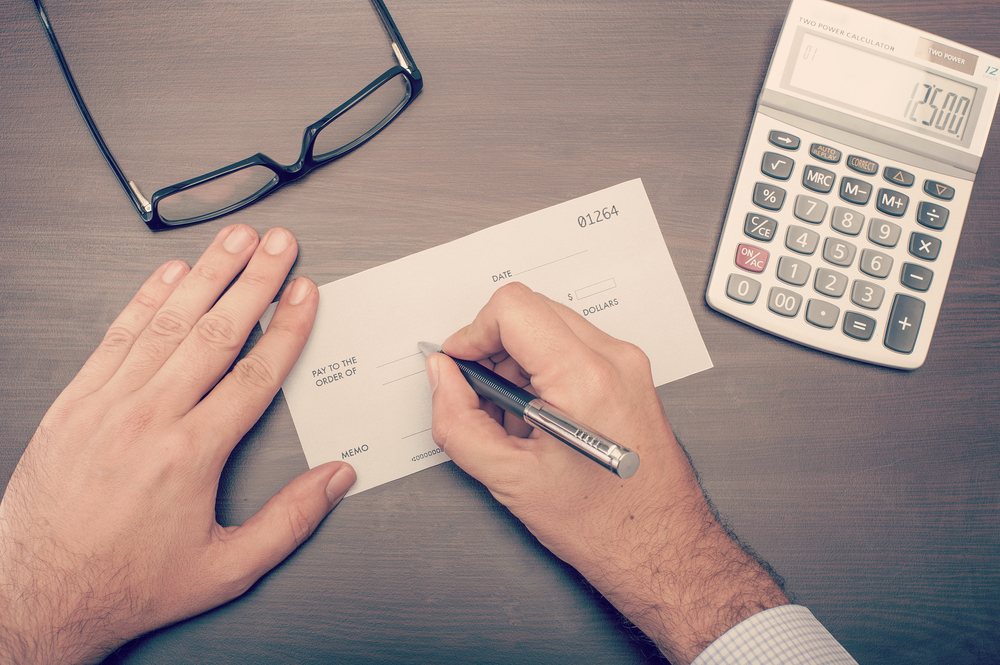
Your money management mistakes could come back to bite you when you try to open a bank account. Many consumers are surprised when a bank tells them that their account applications have been rejecte.


Your money management mistakes could come back to bite you when you try to open a bank account. Many consumers are surprised when a bank tells them that their account applications have been rejected, but it's a possibility if you let your credit deteriorate.
The major reason for being denied a savings or checking account could stem largely from the negative marks on a consumer report known as the ChexSystems report.
In a typical account application process, the bank uses your name and Social Security number to conduct a routine financial background check.
The very first step in this background check is usually taking a look at your ChexSystems report.
The information included as part of the ChexSystems report reveals any bad consumer banking history such as outstanding overdrafts or bad checks you have written. Other information reported includes security alerts or freezes.
More than 80% of all U.S. commercial banks and credit unions have access to your ChexSystems report and almost all of them will pull it to review your application.
If the negative marks on this report are recent, outstanding, or indicative of bad financial habits, there is a very good chance that a bank will reject your account application.
Depending on the financial institution, a credit check may or may not be used to approve your application. Again, any delinquencies and red flags will show the bank that you are unable to manage money responsibly.
If your application does not pass their review of the ChexSystems report and credit reports, the bank will deny your new account request because they’ve identified you as a risk.
Find Your Best Checking Account Explore Top Checking AccountsMost consumers are confused as to how accounts meant for deposits can be subject to such scrutiny. To you, your history and your ability to maintain a basic account may seem unrelated. But to banks, your responsibility matters.
With a savings account, you could cash a portion of a check before that check clears. If that check happens to be backed by insufficient funds, the bank essentially ends up giving you free money.
You may have been in this situation accidentally but banks are suspicious of such activity (which shows up on your ChexSystems report) because it constitutes check fraud.
With a checking account, your bank may extend overdraft protection to your account. It guarantees that your transaction will be completed even if you do not have the funds.
This leaves you with a negative balance and an overdraft fee. The bank offers this feature with the expectations that you’ll pay the fee and replenish your account.
Any negative balance that remains outstanding for a long period of time can be turned over to a collection agency (which shows up on your credit reports).
Under the Fair Credit Reporting Act, consumers are entitled to one free annual ChexSystems report and one free annual credit report from each of the three credit reporting agencies.
For items on reports that are erroneous, dispute them with the reporting agency. For legitimate negative marks, contact the reporting bank or institution directly to rectify the situation.
Don't get discouraged: 20% of commercial banks and credit unions do not use ChexSystems. Visit a smaller bank or credit union and ask if they conduct ChexSystems or credit report reviews.
You don’t want to apply and have them reject you because these inquiries will show up on your reports. Also, credit unions are usually more lenient when it comes to negative marks on your reports.
Since checking accounts are integral parts of consumer banking, some institutions have begun catering to the consumers who have difficulty opening checking accounts due to poor credit and banking history.
Many financial institutions offer second chance checking accounts, but be sure to check that they are insured by the FDIC or NCUSIF.

Simon Zhen is the chief research analyst for MyBankTracker and an expert on consumer banking products, bank innovations, and financial technology. Simon has contributed and/or been quoted in major publications and outlets including Consumer Reports, American Banker, Yahoo Finance, U.S. News - World Report, The Huffington Post, Business Insider, Lifehacker, and AOL.com. Education: Education: B.S. in Health Sciences from Stony Brook University.
We believe by providing tools and education we can help people optimize their finances to regain control of their future. While our articles may include or feature select companies, vendors, and products, our approach to compiling such is equitable and unbiased. The content that we create is free and independently-sourced, devoid of any paid-for promotion.
This content is not provided or commissioned by the bank advertiser. Opinions expressed here are author’s alone, not those of the bank advertiser, and have not been reviewed, approved or otherwise endorsed by the bank advertiser. This site may be compensated through the bank advertiser Affiliate Program.
MyBankTracker generates revenue through our relationships with our partners and affiliates. We may mention or include reviews of their products, at times, but it does not affect our recommendations, which are completely based on the research and work of our editorial team. We are not contractually obligated in any way to offer positive or recommendatory reviews of their services. View our list of partners.
MyBankTracker has partnered with CardRatings for our coverage of credit card products. MyBankTracker and CardRatings may receive a commission from card issuers. Opinions, reviews, analyses & recommendations are the author’s alone, and have not been reviewed, endorsed or approved by any of these entities.